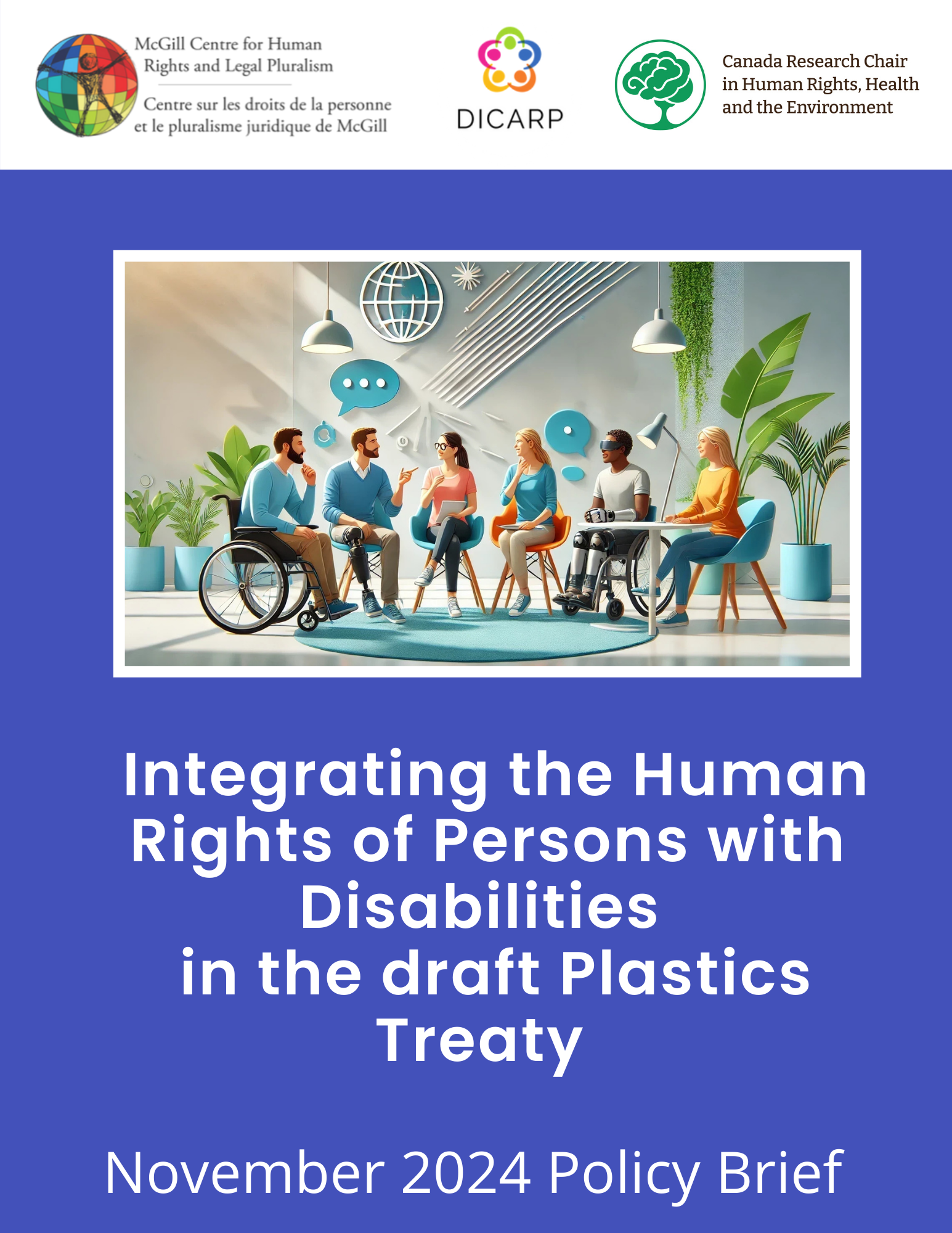News | Noticias | Nouvelles
The latest on disability-inclusive climate action.
Lea lo último sobre los derechos de los discapacitados y el cambio climático y manténgase al día de lo que ha hecho DICARP.
Consultez les dernières nouvelles sur les droits des personnes handicapées et les changements climatiques et restez au courant des activités du PRACIH.
COP27: Progress Made in Disability-Inclusive Climate Action but States Still Failing to Respect the Rights of Persons with Disabilities
The 27th Conference of Parties to the United Nations Framework Convention on Climate Change concluded in Sharm el Sheikh, Egypt, on Monday, November 20th. Dubbed the “African COP,” it resulted in a landmark agreement by States to establish a fund to provide compensation for the loss and damage caused by climate change following years of advocacy by countries in the Global South and civil society. Unfortunately, this achievement was undermined by the simultaneous failure of States to reach an agreement on the phasing out of all fossil fuels. Without progress on this front, the impacts of climate change will inevitably continue to threaten the social and physical infrastructure of countries vulnerable to climate change. The failure of States to take decisive action to fight climate change and limit warning also means that climate change will continue to threaten the effective enjoyment of a wide range of human rights for all individuals. However, the rights of certain groups are threatened more severely than others.
New DICARP Report Shows that People with Disabilities are About to be Excluded from the New Plastics Treaty
A new report from the Disability Inclusive Climate Action Research Program on Integrating the Human Rights of Persons with Disabilities in the draft Plastics Treaty (click here for the fully accessible word version) demonstrates that governments are completely ignoring persons with disabilities and their human rights in the new international treaty being developed to address plastic pollution. This report indicates that states have failed to refer to persons with disabilities in the draft Plastics Treaty, including in provisions that deal with vulnerable groups, the involvement of stakeholders, the design of alternatives to plastics, and measures to ensure a just transition. This is problematic because persons with disabilities are known to be more vulnerable to the adverse effects of plastic pollution as well as inaccessible efforts to address this problem. As such, the exclusion of people with disabilities from the Plastics Treaty is likely to lead to the development of policies, products, and services that increase the barriers that people with disabilities face on a daily basis. The report concludes by calling on states to live up to their obligations under international human rights law and take concrete steps to ensure that persons with disabilities and their rights are fully and effectively included in collective efforts to combat plastic pollution. The authors highlight that including persons with disabilities and committing to universal design in efforts to address plastic pollution have the potential to lead to the development of policies and products that are accessible to a greater share of the population.





















